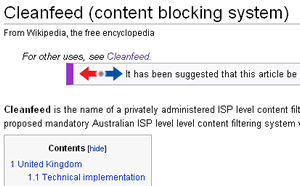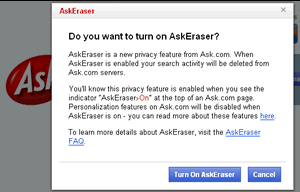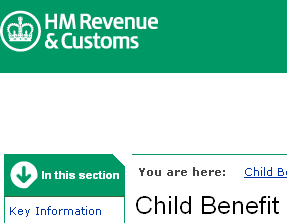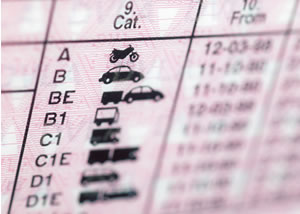 The recent story about Wikipedia being censored by a large number of UK ISPs has raised a lot of blog post/ tweets / column inches about quite how terrible / good it is that our Internet is not free and open.
The recent story about Wikipedia being censored by a large number of UK ISPs has raised a lot of blog post/ tweets / column inches about quite how terrible / good it is that our Internet is not free and open.
Wake up UK! … this ain’t nothing new.
Covers privacy of personal data.
 The recent story about Wikipedia being censored by a large number of UK ISPs has raised a lot of blog post/ tweets / column inches about quite how terrible / good it is that our Internet is not free and open.
The recent story about Wikipedia being censored by a large number of UK ISPs has raised a lot of blog post/ tweets / column inches about quite how terrible / good it is that our Internet is not free and open.
Wake up UK! … this ain’t nothing new.
 Given all of the attention on the banning of Web sites in the UK (read Wikipedia / Scorpions album), we thought we’d give you the inside view on how it comes about.
Given all of the attention on the banning of Web sites in the UK (read Wikipedia / Scorpions album), we thought we’d give you the inside view on how it comes about.
The setup
If a member of the public raises an objection to a Web site to the Internet Watch Foundation (IWF), the IWF takes a look at it to judge if it’s objectionable (btw – they’re one of the few bodies in the UK legally allowed to view the child pr0n)
 Here’s another tale of UK data loss that has to be one for the “You couldn’t make it up” files.
Here’s another tale of UK data loss that has to be one for the “You couldn’t make it up” files.
An Englishman has bought a Nikon Coolpix camera from eBay for £17 that had lots of secret information stored on it.
According to The Sun, list is considerable.
Although The Sun isn’t explicit — not surprisingly, as why would they confuse their readers — it appears that other data was held on the memory card, but not as photos. These include names, snaps, fingerprints and suspects’ academic records.
Special Branch attention
Having realising what he had, the eBay purchaser reported his findings to the police where he lived, at Hemel Hempstead.
Despite the officers apparently not taking it seriously, the anti-terrorist Special Branch officers turned up at his home and removed the camera and the computer that the pictures had been downloaded to – giving them £1,000 to buy a replacement.
It’s reported that investigation are being made into the seller of the equipment.
 We’re still reeling after reading this story last week that a federal appeals court in the US ruled that it was fine for US customs agents to go through the content of an airline passengers laptop with no evidence of wrong doing – just because they felt like it.
We’re still reeling after reading this story last week that a federal appeals court in the US ruled that it was fine for US customs agents to go through the content of an airline passengers laptop with no evidence of wrong doing – just because they felt like it.
 Ask most people about their views on Phorm and you’ll either get a blank look or people turning purple with rage.
Ask most people about their views on Phorm and you’ll either get a blank look or people turning purple with rage.
In brief: It’s a ‘service’ that monitors all of your normal Web browsing, with the stated aim of providing personalised advertising to you. All of this monitoring is made possible under agreements with ISPs, including BT, Talk Talk and Virgin Media.
(more…)
 Web inventor Sir Tim Berners-Lee, has voiced his concerns over the future of the Internet, saying that consumers need to be protected against systems designed to track their web based activity.
Web inventor Sir Tim Berners-Lee, has voiced his concerns over the future of the Internet, saying that consumers need to be protected against systems designed to track their web based activity.
(more…)
 Online directory enquiry service 192.com have launched a new service which combines information on the UK Electoral Roll with the data they hold on phone numbers and addresses.
Online directory enquiry service 192.com have launched a new service which combines information on the UK Electoral Roll with the data they hold on phone numbers and addresses.
Those using the service are able to search for a people in the way you would expect with a directory, but by combining the Electoral Roll data with “modelled statistical data,” the expected age of the person is also shown.
 Ask.com is to allow users of its search engine to delete all of their queries from their server – a stark contrast to other major search engines, especially Google.
Ask.com is to allow users of its search engine to delete all of their queries from their server – a stark contrast to other major search engines, especially Google.
 The loss of private records of 25 million residents by a UK government department continues to make headlines.
The loss of private records of 25 million residents by a UK government department continues to make headlines.
The News of the World newspaper have obtained a March 2004 letter from Treasury risk manager Richard Fennelly following his analysis of the security of the child benefit records system.
(more…)
 Those in the UK will be all too aware of how government departments have been leaking UK residents data more furiously than a fire-hose blasting through a colander.
Those in the UK will be all too aware of how government departments have been leaking UK residents data more furiously than a fire-hose blasting through a colander.
Following the loss of the bank details of 25 million UK families a few weeks ago, another loss has come to light.
(more…)